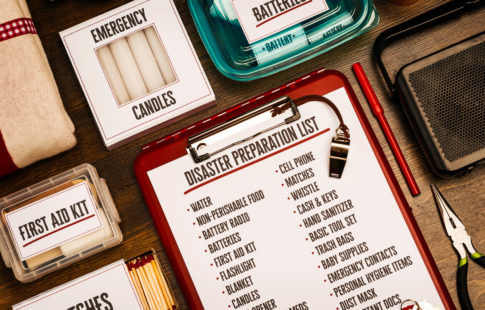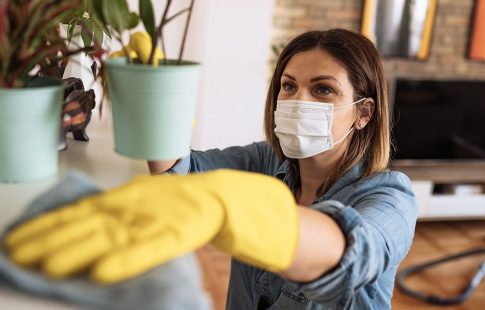Estimated reading time: 3 minutes
With hurricane season in full force, and the risk of tropical storms, it’s important to be as prepared as possible. These events can be similar in terms of risks, though their key difference is wind speed, with hurricanes’ being stronger. With that in mind, Weather.gov says that the three key factors contributing to weather safety during hurricane season are knowing what to do before, during, and after a storm.
Here’s how to prepare your house:
1. Secure your property
Make sure that there are no loose items on your property, such as furniture or outdoor equipment. If your home is in danger of being hit by strong winds, shielding windows and sliding glass doors is one of the most important measures to take to protect your house from severe or extensive damage. An alternative to boarding up windows is taping them, which will keep glass from shattering even if the window is broken. Read more about securing property here.
2. Check your insurance coverage
If you’re a homeowner, chances are, you have insurance policies that will cover potential costs of replacing your possessions and rebuilding or repairing your home. However, standard homeowner’s insurance does not typically cover flood or hurricane damage. Contact your insurance provider before hurricane season—generally defined by the National Oceanic and Atmospheric Administration (NOAA) as May to November in the East Pacific and June to November in the Atlantic—to find out the specifics of your policy so that you can make necessary adjustments. Also be aware that storms or hurricanes may take place before or after these typical times.
3. Collect and copy important documents
It’s a good idea to collect and safeguard critical paperwork or information, such as proof of ownership, personal identification, and financial and home-related account details and login credentials. Once you have collected everything, make copies of each document and store them in a safe location that will not be damaged during the hurricane. Also consider scanning the documents and emailing them to yourself or uploading them to a secure, cloud-based account to store them electronically.
4. Back up other electronic files
Backing up your electronic files is a helpful way to recover data in case anything happens to a physical computer or device during a hurricane. It is also a good idea to have extra batteries and chargers for your essential devices like cellphones and computers on hand during a hurricane, just in case.
5. Pay attention to warnings and evacuation orders
In the event of a hurricane, it is important to have the tools you need to protect yourself. The better informed you are about the storm, the better prepared you can be to weather it. Pay attention to local news reports and evacuation orders so you are able to respond quickly and appropriately. Also, be sure your car has a full tank of gas and an emergency kit if you have to evacuate. Develop an evacuation plan and discuss how you’re going to communicate with loved ones before hurricane season so that you and your family are ready for whatever nature throws your way.
If you are a Mr. Cooper customer and are impacted by a hurricane or tropical storm, please call us at 833-685-2565. You can also read additional tips and information here.
Tradenames and trademarks used in this blog post are the property of their respective owners. Nationstar Mortgage LLC d/b/a Mr. Cooper is not affiliated, associated, or sponsored by any of these owners. Use of these names and trademarks is not intended to and does not imply endorsement but is for identification purposes only. Information provided does not necessarily represent the views of Mr. Cooper. Information is subject to change without notice.







